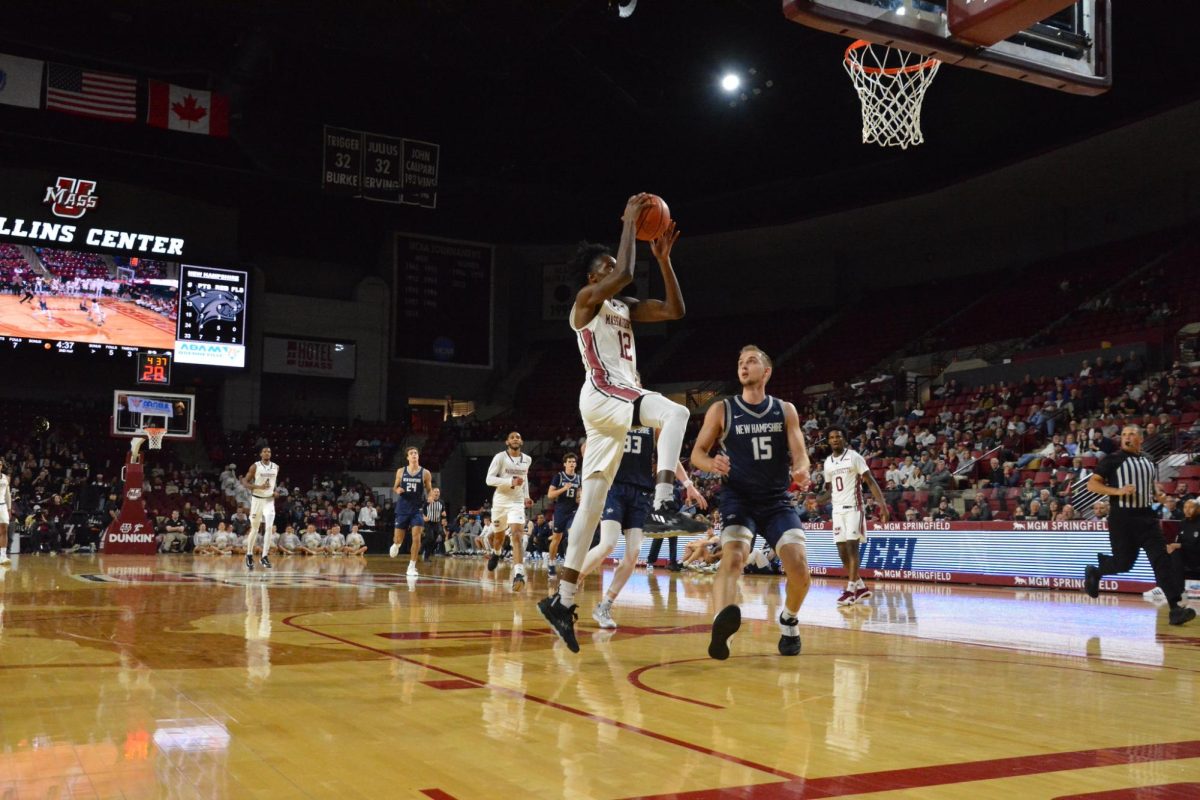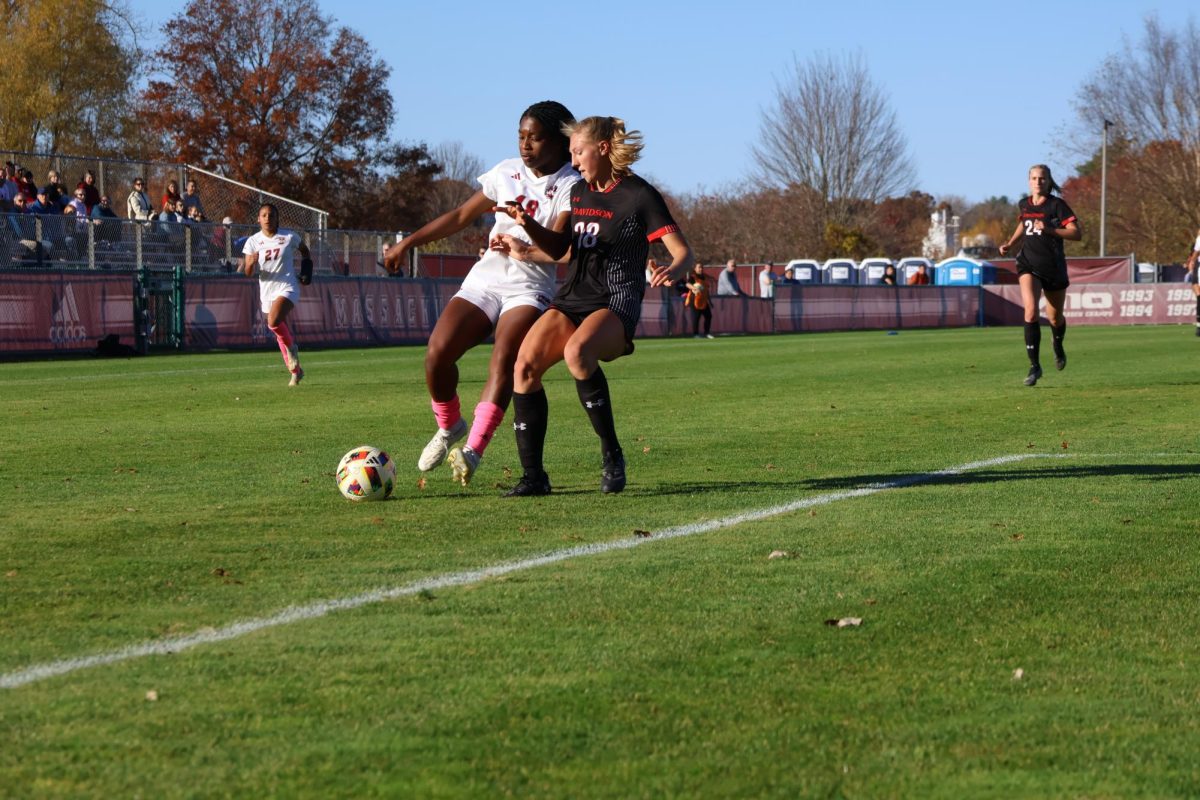Faculty at the University of Massachusetts are recommending a two million dollar cut to the athletic department over the next four years.
The advisory resolution was passed by the Faculty Senate at yesterday’s meeting after much discussion – not over whether or not to cut athletics, but over the severity. The yearly cut, if implemented, would represent a yearly 2.7 percent cut in the department’s 18 million dollar budget.
Professor Craig Moore, chair of the Program and Budget Council, put forth the motion last semester after the Faculty Senate directed the council to look into the athletic budget. The idea to cut athletics was formulated before the budget cuts in January, and that’s the criteria the council used, Moore explained.
“We did that in isolation of those other areas [of the budget],” Moore said. “This is not the result of any comprehensive review of the entire campus.”
The intent of the motion is to spread out the pain of cuts, Moore said, and to protect academics.
“The academic mission of the campus is primary,” Moore said. “The academic heart of the campus must be given priority.”
The report associated with the motion stated that athletics were not a predominant factor in enrollment, but that academic quality was the deciding factor.
“If one evaluates the importance of athletic prominence to prospective applicants and their parents, the evidence is that it has very little influence on the decision to apply or attend,” the report read. “Highest on their list is the availability of majors, academic reputation of the institution, and the quality of the faculty.”
The original motive of the motion was to send a message that the campus was tired of seeing money poured into failing programs, Moore said – hence the original one million dollar figure. The UMass football program lost 2,571,262 dollars last year, according to the 2000-01 UMass Athletic Department Annual Report. Moving to Division I-A, the council concluded, is neither fiscally sound nor wise.
“I-A football appears to be a political “cause” that some members of our board of trustees are enamored with but has not been thought through very well,” the motion’s report stated. “Shouldn’t the move to I-A football come after we move our campus into the highest academic conference? Isn’t highest-quality academics our primary mission?”
Senator Robert Levin, a professor of Food Science, proposed to amend the motion to read that the largest budgeted athletic programs should be targeted first, and that no teams may be eliminated.
Levin said he didn’t want to see athletics “removing excellence to preserve mediocrity.”
Senator Jack Tager, a professor of History, was against the amendment because it insinuated that the faculty distrusted the Athletic Department.
“These are our colleagues,” Tager said. “Whatever decision they make will become a public decision, and there will be a public response.”
Interim Chancellor Marcellette Williams cautioned that while she supported the motion, no program was exempt from the review that was ongoing. Williams hinted that in coming weeks there would be more information available on the cuts.
Senator Ron Story, a professor of History, spoke in favor of the motion.
“The board of trustees doesn’t care about us,” Story said. “If this amendment fails, I will propose that we increase the amount.”
The amendment failed, as senators disagreed over whether or not it was the Faculty Senate’s job to tell the Athletic department how to do its job, and senators voted to increase the amount from one million dollars to two million. The final amount is arbitrary though, Moore said.
“We just picked the figure of one million dollars to send a message,” Moore said. Moore also explained that reviews were ongoing in the Athletic department and that any cuts may in fact be greater than the two million dollar recommendation.






